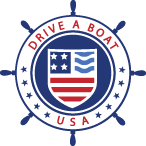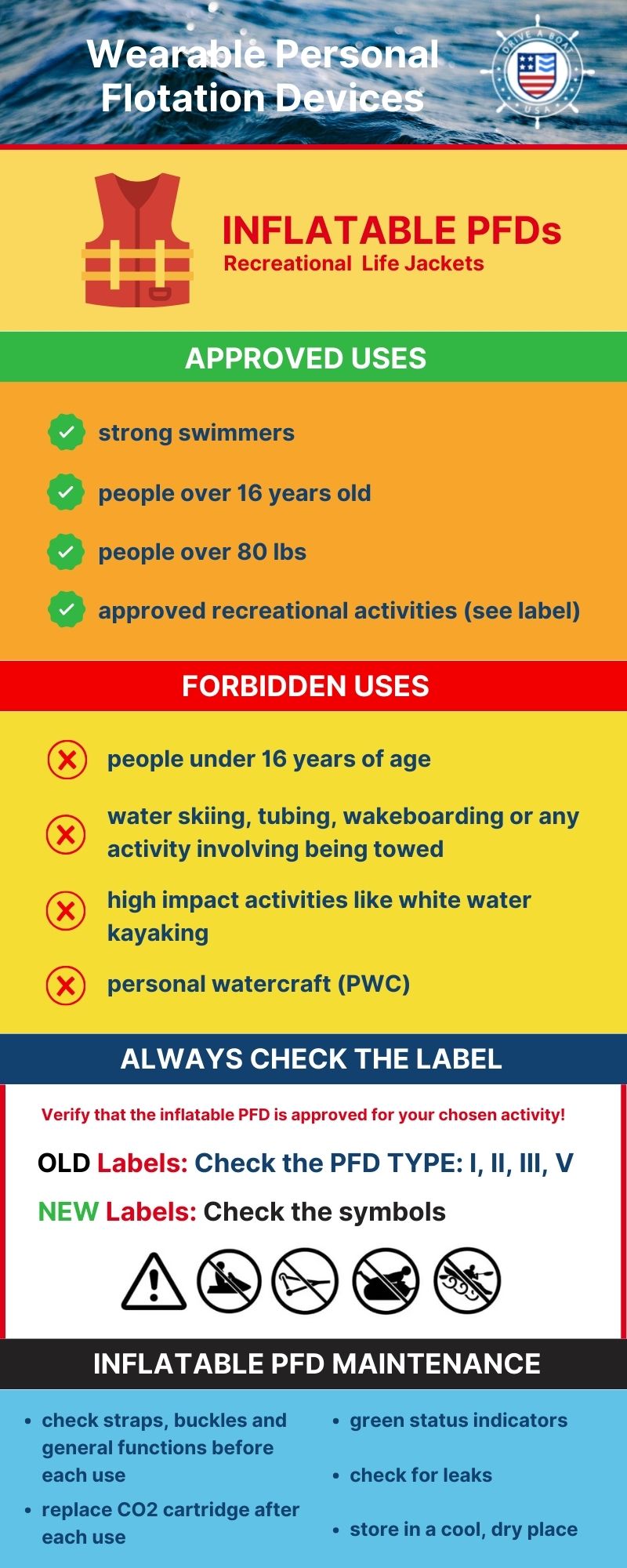Inflatable PFD Requirements & Restrictions
Within the broader category of wearable PFDs (also known as life jackets or life vests), there are two main styles to choose from: foam or inflatable.
Inflatable personal flotation devices can be a good choice for boaters who want maximum comfort and mobility. However, it is important to note that inflatable PFDs are not legal for use in every type of situation.
To stay safe on the water, inflatable PFDs must be used according to specifications and only in approved circumstances. Always remember, a life jacket can only protect you if you are wearing it correctly.
Inflatable PFD uses
In the USA, inflatable PFDs can be used by confident swimmers. They must be worn at all times to meet carriage requirements (you cannot simply keep the PFD on your boat). Some inflatable PFDs are only suitable for recreational activities.
An inflatable PFDs must be inflated before it becomes useful as a flotation device. Inflation can be done manually by pulling a chord or may be triggered automatically as soon as the life jacket comes into contact with the water. Inflatable PFDs can be belt packs or inflatable vests.
To determine whether a specific inflatable personal flotation device is suitable for your preferred activity, check the label.
Older labels
Older labels categorize life jackets according to Type. If your inflatable PFD has an older label, note whether it is Type I, II III or V (there are no Type IV, or throwable, inflatable PFDs) and follow the usage recommendations accordingly.
Newer labels
Newer labels will indicate a buoyancy number between 50 and 275, in addition to recommended uses and activities for which an inflatable PFD is not considered adequate, represented by symbols that are crossed off.
Read our guide to PFD rules and regulations to learn more about PFD labels and requirements, including US Coast Guard approval and state-specific laws.
Inflatable PFD restrictions
There are several situations in which it is never permitted to use an inflatable PFD. These include:
- On children under 16 and/or weighing less than 80 lbs
- On people who cannot swim or who are weak swimmers
- While using personal watercraft (PWC)
- While doing whitewater kayaking or other high-impact activities
- While tubing, waterskiing, wakeboarding, or doing other towed activities.
Inflatable PFDs are permitted when using stand-up paddleboards. To be sure you are using the right PFD for the right activity, always check the label first.
Inflatable PFD cost and maintenance
In general, inflatable PFDs are more expensive than foam life jackets.
To keep your inflatable PFD in working condition, you will need to do the following:
- Check all components of your inflatable PFD once a year to make sure they are functioning, and do a visual check before each use. Status indicators should be green.
- Check for leaks by inflating the PFD and leaving it overnight. If it has deflated in the morning, you need a replacement.
- Replace the CO2 cartridge after each use, and check that it is new before wearing the life jacket again.
- Store the PFD properly, in a shaded, indoor location. Always dry out the PFD before storing it to prevent mold and mildew formation.
Drive a Boat USA teaches safe boating across the country
Inflatable PFDs are lightweight and comfortable, and they can be a good option for strong swimmers. However, they should never be used for high-impact activities like water skiing or tubing or by children under 16 years of age.
Whether you are driving a boat or riding as a passenger, you need to be wearing a US Coast Guard-approved PFD or have one on board. Remember, inflatable personal flotation devices must be worn at all times to meet legal safety standards.
You can take a boater safety course to learn everything you need to know about safe boating practices and applicable laws. Drive a Boat USA offers a fun and engaging course to obtain your official state-approved online boating license in California, Florida and New York.


